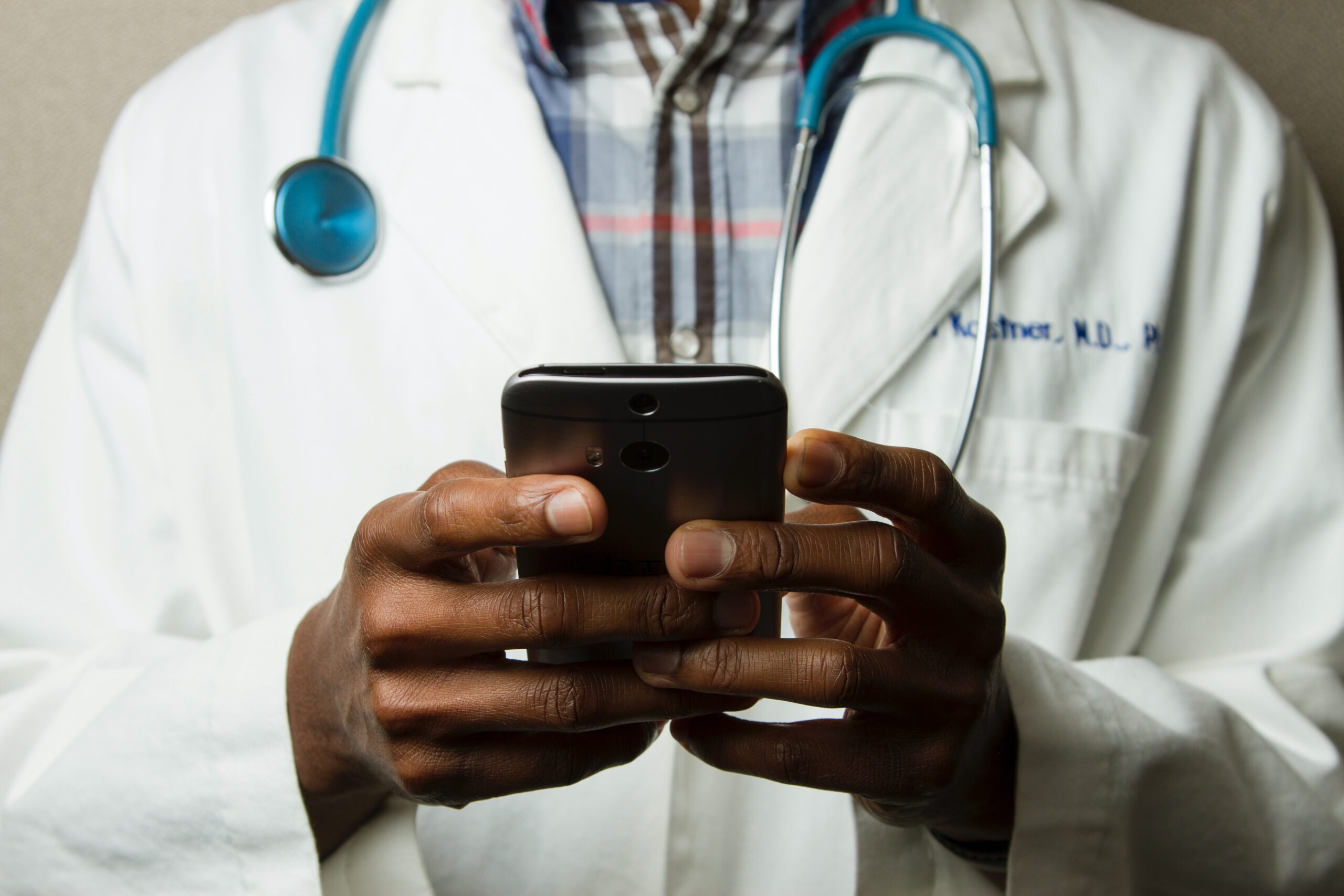- What Are The Different Types Of Healthcare CRM Software
- What Are The Most Important Features Of CRM Software
- How Do I Choose The Right Healthcare CRM For My Practice?
- What Is HIPAA-Compliant Software
- What Is The Best CRM For The Healthcare Industry: Our Key Takeaways
What Are The Different Types Of Healthcare CRM Software
Healthcare CRM (Customer Relationship Management) software provides a centralized platform for healthcare organizations to manage patient interactions and streamline various processes. These include appointment scheduling, marketing, and communication efforts. Healthcare CRM solutions cater to the needs of various medical professionals, including hospitals, clinics, and private practices. Let’s discuss the different types of healthcare CRM software and their benefits.
Improved Patient Experience
CRM software focuses on enhancing the patient experience. Patient CRM software allows you to manage patient information. Medical history, treatment plans, and appointment schedules should be considered. This provides a seamless patient journey from the first point of contact to follow-up appointments and improves patient satisfaction for long-term loyalty.
Some key features of Patient CRM software may include:
Appointment scheduling: Efficiently manage and schedule patient appointments.
Patient portal: A secure platform for patients to access their medical records, view lab results, and request prescription refills.
Treatment plans: Create personalized treatment plans and track patient progress.
Quality Treatment
CRM software for hospitals aims to improve the quality of treatment provided to patients. By consolidating all patient data in a single platform, healthcare CRM solutions enable medical professionals to make informed decisions based on comprehensive patient information. This ensures more accurate diagnoses, tailored treatment plans, and better patient care.
A few benefits of CRM software for hospitals include:
Health analytics: Data-driven insights to improve patient care and organizational efficiency.
HIPAA compliance: A secure environment for storing and managing sensitive patient data.
Interoperability: Seamlessly integrate with other healthcare systems, such as Electronic Health Records (EHR) and billing systems.

Advanced Communications
Healthcare CRM software helps organizations enhance their communication channels, providing patients with personalized and timely information.
Some of the communication features of Healthcare CRM solutions include:
Automated reminders: Send appointment reminders to patients via email or SMS to reduce no-shows and improve punctuality.
Marketing campaigns: Develop targeted marketing strategies to attract new patients and retain existing ones.
Patient satisfaction surveys: Collect feedback from patients to evaluate service quality and identify areas for improvement.
What Are The Most Important Features Of CRM Software
Several key features can greatly benefit your organization regarding CRM software for healthcare providers. Understanding these features will help you select the best healthcare CRM system.
Centralized Patient Data Management: A sound CRM system should manage and store all patient information in one central location. This includes medical history, prescription data, appointments, and patient communication records. Access to this information lets healthcare providers make well-informed decisions and deliver more personalized care.
Improved Patient Communication: For healthcare providers, CRMs should offer communication tools that enable efficient and secure patient communication. These can include email, text messages, or even chat functionality. Automated reminders for appointments and medication refills can also be sent to enhance patient experience.
HIPAA Compliance: Healthcare organizations are subject to strict patient confidentiality and data security regulations. Ensuring your CRM software is HIPAA compliant is crucial in protecting sensitive patient information and maintaining compliance with these regulations.
Scalability and Customizability: As your organization evolves, so will your requirements for CRM software. Your chosen healthcare CRM system should be able to scale and adapt accordingly. It should also offer customization options, allowing you to tailor the system based on your organization’s specific needs.
Integration with Existing Systems: To enhance efficiency and streamline operations, your healthcare CRM should integrate seamlessly with your existing software, such as electronic health records (EHR) and billing systems. This will allow for a smoother transfer of data between systems and will facilitate more coordinated care.
Advanced Reporting and Analytics: Healthcare CRM systems should provide advanced reporting and analytics tools that allow you to gain insights and track key performance indicators (KPIs).
Considering these essential features, you can select the right CRM software for your healthcare organization to benefit your operations and ensure a positive patient experience.
How Do I Choose The Right Healthcare CRM For My Practice?

When looking for the best Healthcare CRM for your practice, it’s essential to consider various factors affecting your day-to-day operations and patient experiences. This section will discuss critical aspects of choosing the right Healthcare CRM focusing on patient management.
Patient Management
Patient management should be at the forefront of your decision-making process. The following are essential factors to consider when examining patient management features:
Functionality: Examine the CRM’s overall features and capabilities. The system should provide appointment scheduling, interactive reminders, customizable chart templates, and seamless integration with other healthcare software. The best CRM for doctors will offer advanced modules, such as e-prescribing, patient portal access, and analytics to optimize patient care.
Ease of use: The CRM should be easy to navigate for all users, including administrative staff and healthcare providers. Consider demoing multiple Health CRM options to determine the most user-friendly platform for your team.
Adaptability: The CRM should accommodate changes in your practice, such as adding new providers or expanding to multiple locations. Scalability is crucial in selecting a healthcare CRM, as you want a system that grows with your practice’s needs.
Data Security: CRMs should comply with industry standards to keep your patient’s information secure. Research the vendor’s reputation and any previous data breaches, if applicable.
Pricing: Take the time to compare pricing plans and options and any additional fees associated with adding new users or modules. Look for a CRM that offers a transparent and reasonable cost structure to fit your practice’s budget.
When researching and selecting a Healthcare CRM for your practice, prioritizing patient management features that cater to your specific needs can ensure an optimal experience for your staff and patients. Consider these considerations while searching for that perfect CRM solution to help your practice thrive.
What Is HIPAA-Compliant Software
HIPAA-compliant software is necessary for US healthcare professionals and institutions as it protects American’s sensitive patient data. These solutions were designed to meet the specific guidelines of the Health Insurance Portability and Accountability Act (HIPAA), which sets the standard for securing patients’ protected health information (PHI) in the US.
What Is The Best CRM For The Healthcare Industry: Our Key Takeaways
When selecting the best CRM for the healthcare industry, it’s crucial to find a solution specifically tailored to the needs and requirements of healthcare providers. The right Healthcare CRM solution should prioritize patient management, streamline communication, and maintain compliance with regulations such as HIPAA. Here are some key features to consider when evaluating CRM software for hospitals and other healthcare providers:
Patient CRM: A good healthcare CRM solution must have robust patient management capabilities. This includes maintaining comprehensive records of patient interactions, preferences, and medical history. With an effective Patient CRM, you can create personalized journeys for your patients, ultimately improving their loyalty and engagement with your healthcare services.
Centralized database: A good healthcare CRM should provide a centralized database where all stakeholders – doctors, nurses, and administrative staff – can easily access and update patient information. This makes collaborating and coordinating care easier while ensuring patient data remains secure and up-to-date.
Automation: CRM software for hospitals should offer automation features, such as appointment reminders, medication refill alerts, and marketing campaigns. These features can save your healthcare staff time and improve patient experience by ensuring timely communication and care.
In summary, when looking for the best CRM for the healthcare industry, prioritize solutions emphasizing patient-centric care, data privacy, and HIPAA compliance. Choosing a CRM that streamlines workflows, fosters collaboration, and improves patient satisfaction is essential.
Platforce is the best CRM software for lead generation, order management, sales automation, and task management. Unlike other software, Platforce gives your company all it needs to optimize customer relations and boost customer experience. Try out the Platforce CRM system with a demo or tour now. You can also stay updated on our Youtube and LinkedIn channels.
